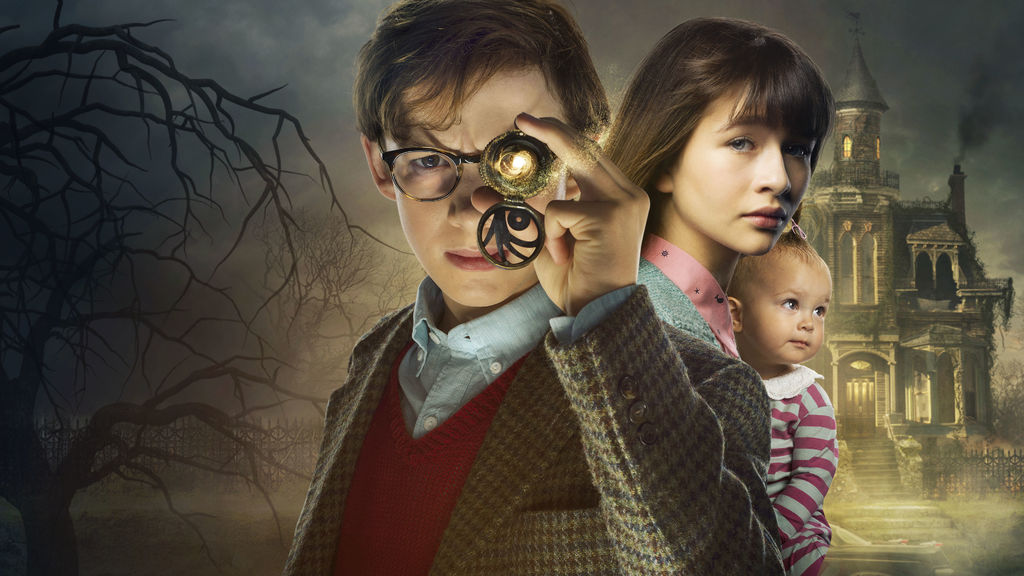By Peter Edgar
Recently, Netflix has been pumping out original series as if they were “Make America Great Again” hats in a Chinese sweatshop—though I’ll let you decide whether that’s a positive comment, in the vein of the critically-acclaimed and culturally-beloved Stranger Things, or more along the lines of the less-well-known and poorly-rated Haters Back Off! (though I understand that I may catch some flak—a word which here means “the angry criticism of the author’s roommate”—for saying so). One of the most recent installments to the Netflix roster is Lemony Snicket’s A Series of Unfortunate Events, a story that follows the misfortunes of the Baudelaire children after they are separated from their parents.
The series was released this past Friday the 13th; this is no coincidence, considering the show’s affinity for the unlucky. The main plot follows that of the original children’s book series, A Series of Unfortunate Events, published by Daniel Handler under the pseudonym of Lemony Snicket—Handler was active in the production of the Netflix series. The character of Lemony Snicket is portrayed by Patrick Warburton (of Rules of Engagement, Seinfeld, and the voice of Kronk in The Emperor’s New Groove), and is active in the narration of the show.
Lemony Snicket’s A Series of Unfortunate Events, or ASoUE, as the series is affectionately acronym-ed, follows the story of three Baudelaire children, Violet, Klaus, and Sunny (played by Malina Weissman, Louis Hynes, and Presley Smith, respectively). The three children engage their talents to escape the clutches of Count Olaf, a horrible villain with a huge ego, played by Neil Patrick Harris. It may be his practice playing Barney Stinson on How I Met Your Mother that Harris is able to conjure such a ridiculously self-obsessed yet somehow successful pursuer.
Die-hard fans of ASoUE will recognize the frequent interjection of Snicket himself, as well as his dedications to his “darling, dearest, dead” lover, Beatrice. They inevitably will also be comparing Netflix’s adaptation of the books to the 2004 film of the same title, in which Count Olaf is played by Jim Carrey and the fearful yet grammar-obsessed Aunt Josephine is rendered by Meryl Streep. The difference between the two productions could not be more evident; while the movie is easily entertaining, it accommodates more for the person of Count Olaf than the Baudelaires themselves: thus, the Netflix series overshadows it in artistry, character development, and book faithfulness.
Lemony Snicket’s A Series of Unfortunate Events is a mixed bag, a phrase that Lemony Snicket himself defines in Book Six, The Ersatz Elevator, because “the good parts were very good, but the bad parts were simply awful.” If you are a viewer who despises dialogue and prefers a steady stream of action, then this show may not be for you—much of the plot is moved along by intelligent conversations the Baudelaires engage in with other adults. For this reason, one may find the show to be slow in places; however, the creative and thoughtful wit employed by the show’s writers livens the scenes with quick quips.
One definite highlight is the cast’s diversity. Daniel Handler stressed the strength of his female characters in the book series, both good and wicked—though the lines blur between the two moral denominations as the series progresses—but the 2004 movie casting almost entirely excluded people of color, besides one doltish police inspector. It is refreshing to see that in the Netflix rendering of ASoUE that some of the most well-meaning guardians, like Uncle Monty, Aunt Josephine, and the Poe family, are portrayed by non-white actors.
One of the dangers of engaging with a story that is so whimsical in places is that while the plot is mysterious and dark at times, the Baudelaires’ travels lend to beautiful and unique scenes and settings that are worth taking the time to admire, and the people they encounter are distinct and memorable. While it would take too much space to list all of the noteworthy secondary characters, keep an eye out for Phil (Chris Gauthier), Justice Strauss (Joan Cusack), and “the henchperson of indeterminable gender” (Matty Cardarople).
Overall, Netflix has made a good impression with Lemony Snicket’s A Series of Unfortunate Events. While Neil Patrick Harris’s performance as the nefarious Count Olaf is stiff at a couple points, viewers will enjoy the subplot of the secret organizations as much, if not more. The series presents an inordinate amount of hope in the midst of misery, and due to the inventive storytelling, new viewers—as well as long-time devotees—will, hopefully, not “look away”, as Netflix has insisted in their ad campaign.








